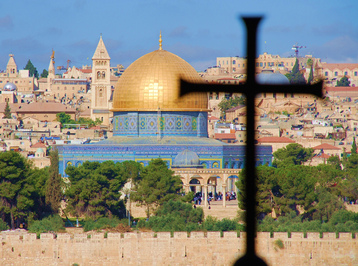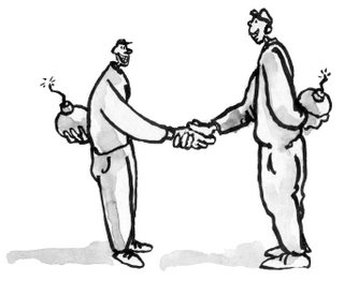
The result has been a readiness to divide and to vilify opponents. Oddly there is a common source for these religious fractures. Liberal or conservative, there is widespread emphasis on religious authenticity, on claims for pure belief and practice. There is also a readiness to condemn those who disagree. The mix of narrow standards and rejection of difference has escalated. Opportunities to reconcile are hard to find.
Authentic religion for some represents literal interpretation of scripture or tenacious loyalty to certain dogmas. Authentic religion for others promises inclusion or emphasis on social justice. But whether strict norms or adaptation to new cultural circumstances are your emphasis, the logic is the same. My side has the authentic faith, yours doesn’t.
Yet there are odd and welcome opportunities for unity. Recently a few Muslim, Jewish, and Christian leaders from Richmond, Virginia traveled together to the Middle East. It could have been uncomfortable for a rabbi visiting Jordan, and an imam in west Jerusalem.
But there was generous hospitality everywhere. And the group found common ground. There was little reference to doctrine; there was much reference to families and to issues facing central Virginia. We assumed we were moderates, or such a trip would not have worked.
We also assumed each of us intends to be faithful. But by being together we found we could be authentic together without competition. Often we taught each other. More often we laughed and shared experiences. It was not difficult. It was the benefit of being together. “Love of God and love of neighbor” came alive.
William L. Sachs



 RSS Feed
RSS Feed
